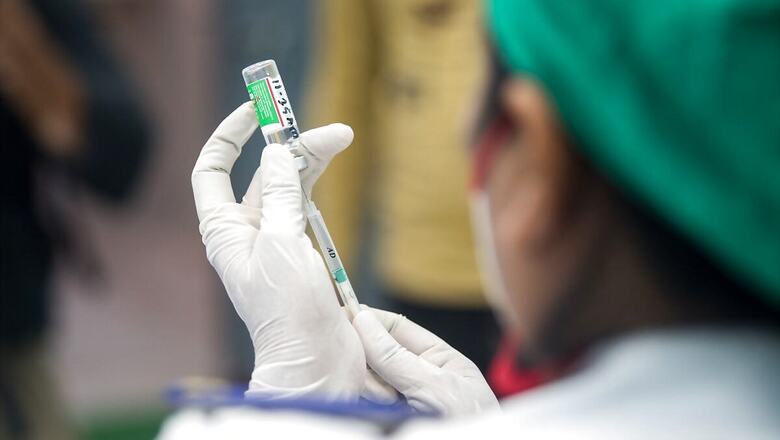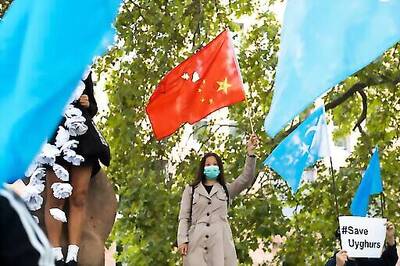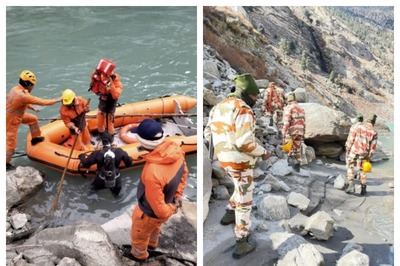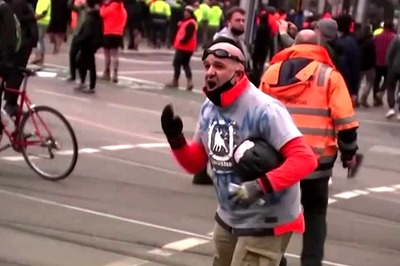
views
Doubling or tripling the intervals between the first and second Covid-19 vaccine dose is the new strategy to which more and more countries are now turning to. However, not proven yet, the strategy is a bit controversial.
Delay in getting the second jab not only allows the existing supply of jabs to be more widely dispensed, it also boosts their protective power by providing the immune system more time to respond to the first dose of vaccine, NDTV reported.
According to the new research, levels of antibodies produced to combat the virus are 20% to 300% higher when the follow-up vaccine does comes a bit later.
Singapore, the city-state which was much affected by the Coronavirus, is now extending dose intervals. Previously, it was three to four weeks which has now changed to six to eight weeks, in order to reach a goal of covering its entire adult population with at least one shot by the end of August.
India too, who is facing a catastrophic outbreak and is now in a dismal condition due to the augment of second wave of Covid-19, is advising 12 to 16 weeks gap between jabs. Other nations in similar straits with few vaccine doses and antsy populations are also likely to follow the same.
“If I could, I would push a button that says right now, this second, we give one dose to everybody we can reach,” Gregory Poland, said virologist and director of the Mayo Clinic’s Vaccine Research Group.
“We’ll get around to second doses later. In the midst of a world on fire, you put out as many fires as you can, as quickly as you can,” Poland said.
The research suggests that the first shot primes the immune system which allows it to start making protective antibodies against the virus. The longer that response is allowed to mature, the better will be the reaction to the second booster shot that is scheduled to come weeks or months later.
The benefits from longer dose intervals is being witnessed across all types of vaccines. But at the same time, there are drawbacks as well.
The additional time between doses means – it will take longer for densely populated countries that are the worst affected to protect their populations. While one shot offers some level of benefit, people are not considered fully immunized until several weeks after their second dose.
The interval is particularly dangerous when less potent vaccines are being used or more transmissible variants of the virus are being circulating.
Some countries have started pushing the boundaries. India’s delay of three to four months between doses are among the longest in the world. This means those scrambling to get vaccinated amid the second wave of Covid-19 won’t be fully protected until the summer or the fall.
The greater delay can also increase the logistical hurdles that are involved in getting millions of people to return to complete the series, especially, if they feel they already have some coverage from the first jab. It is already difficult to get people, in developing countries, to return given transportation and communication challenges.
“When you have any kind of a two-dose schedule, it’s hard logistically. You worry about when people will come back for a second shot, or if you will lose them entirely,” Gigi Gronvall, said a senior scholar at the Center for Health Security at the Johns Hopkins Bloomberg School of Public Health.
Dale Fisher, an infectious diseases professor at the National University of Singapore said, “We’re vaccinating 40,000 people a day at the moment, so you can do the math and work out how long that’ll last. And that’s a fairly rigid pipeline. It’s not like you can just order more.”
He further added that by delaying the second dose, several hundred thousand people will get their first injection sooner.
Read all the Latest News, Breaking News and Coronavirus News here. Follow us on Facebook, Twitter and Telegram.




















Comments
0 comment